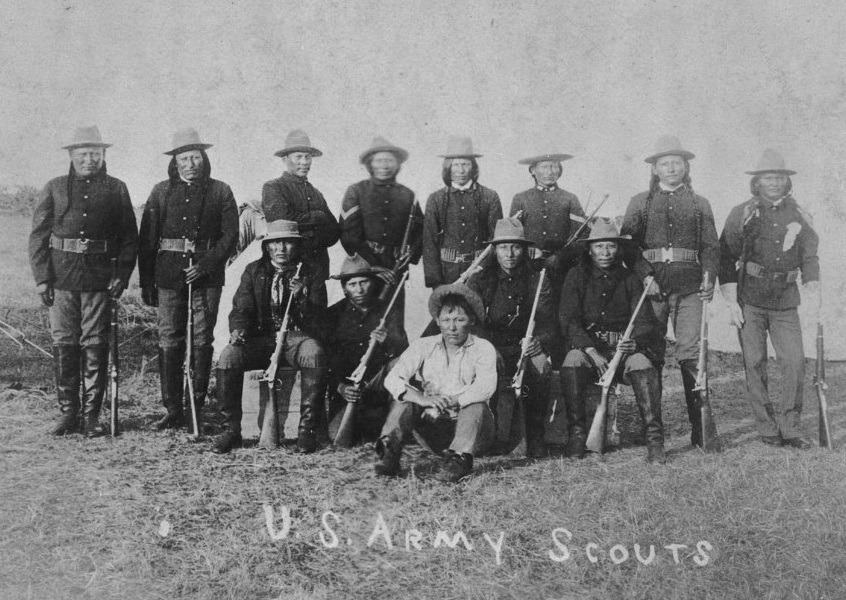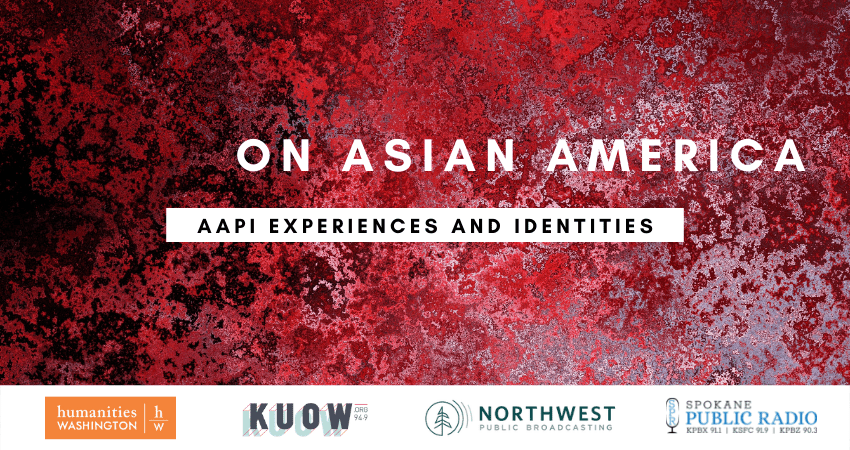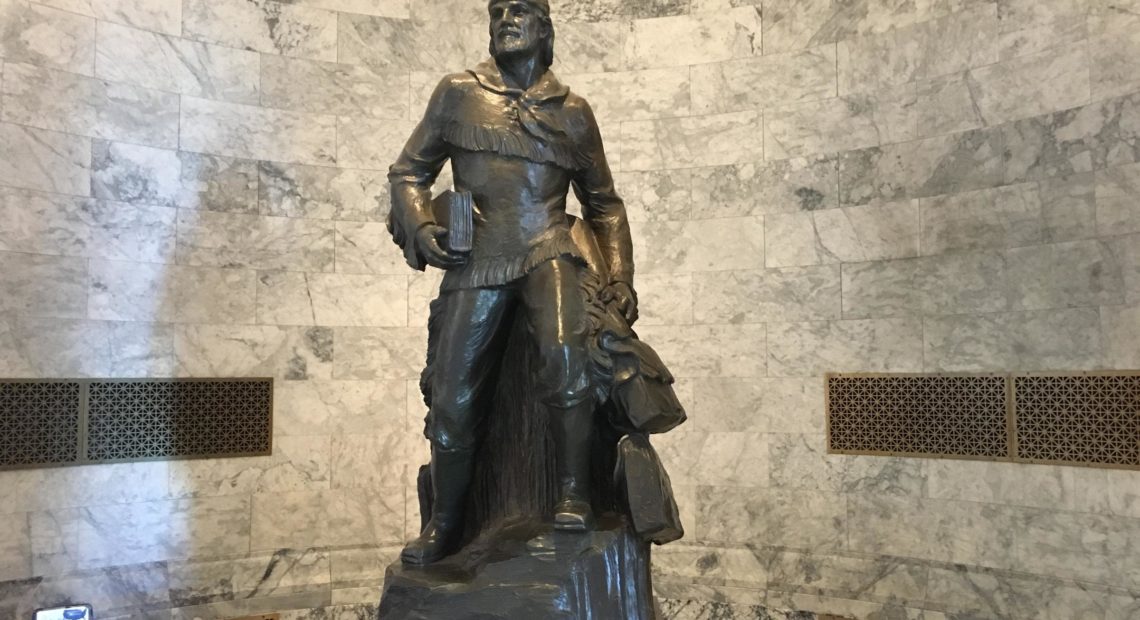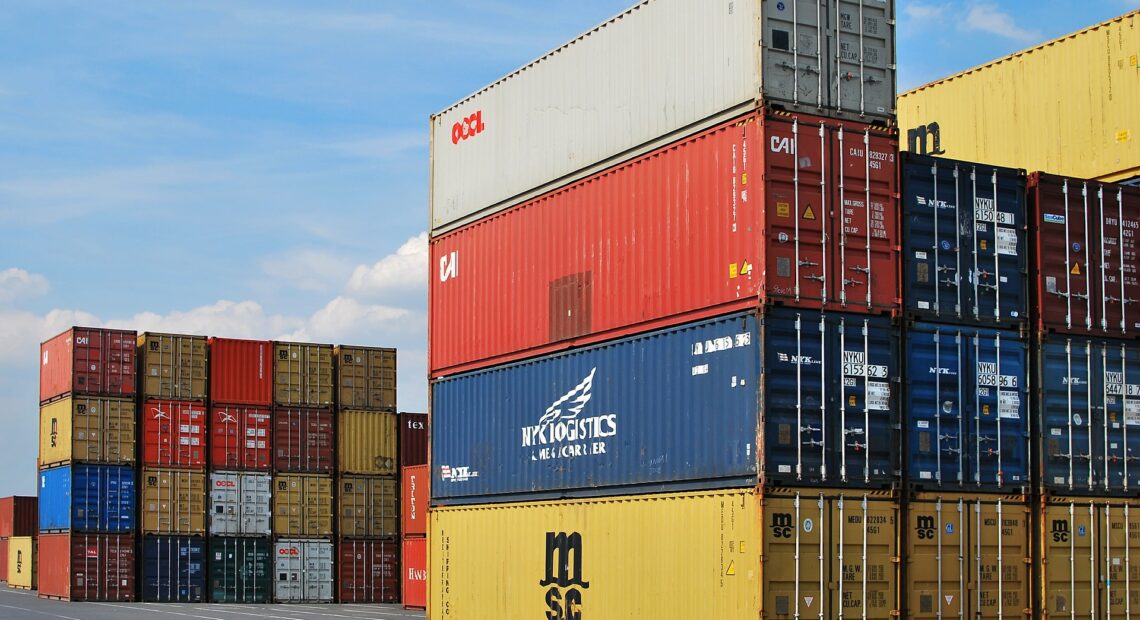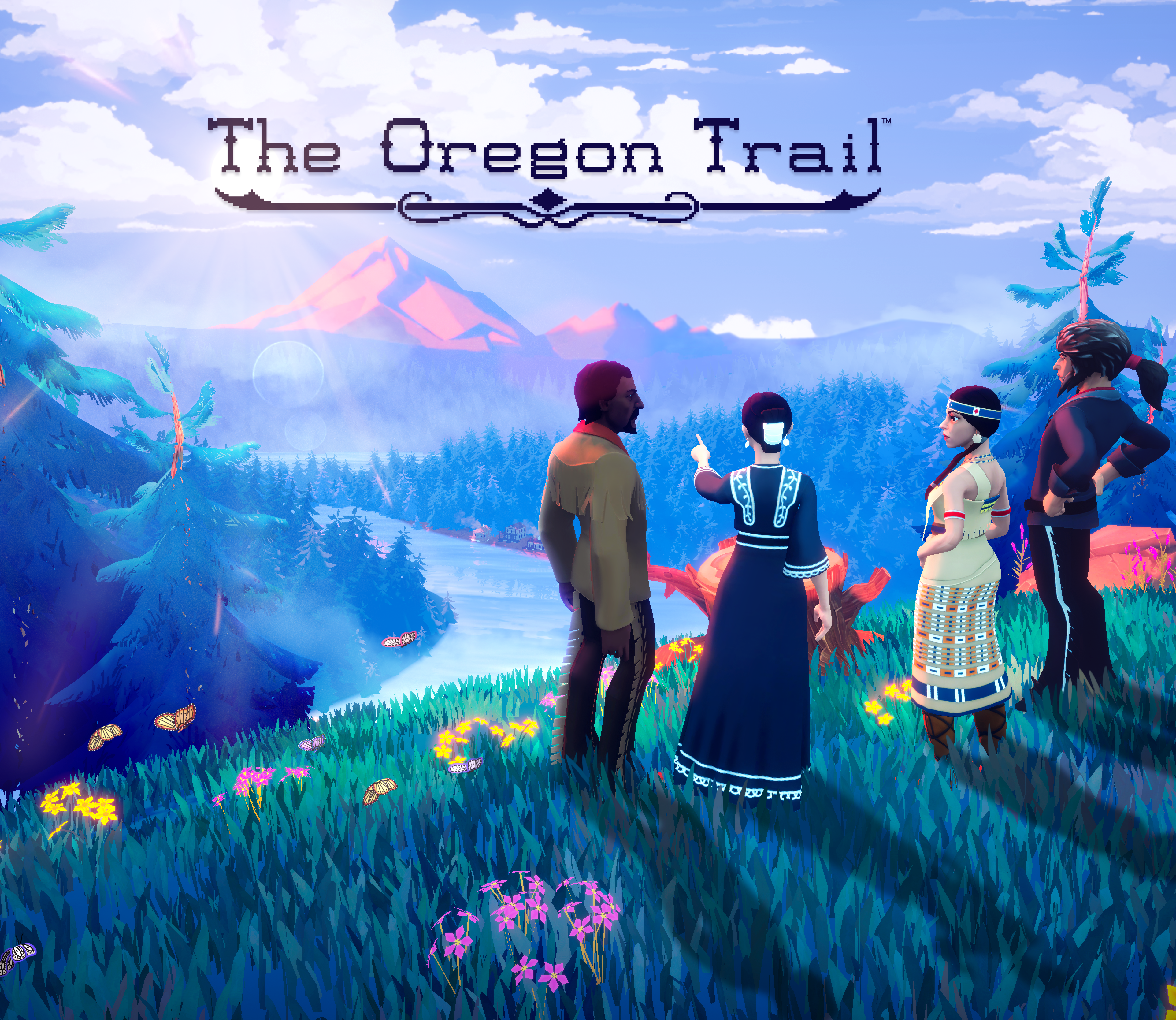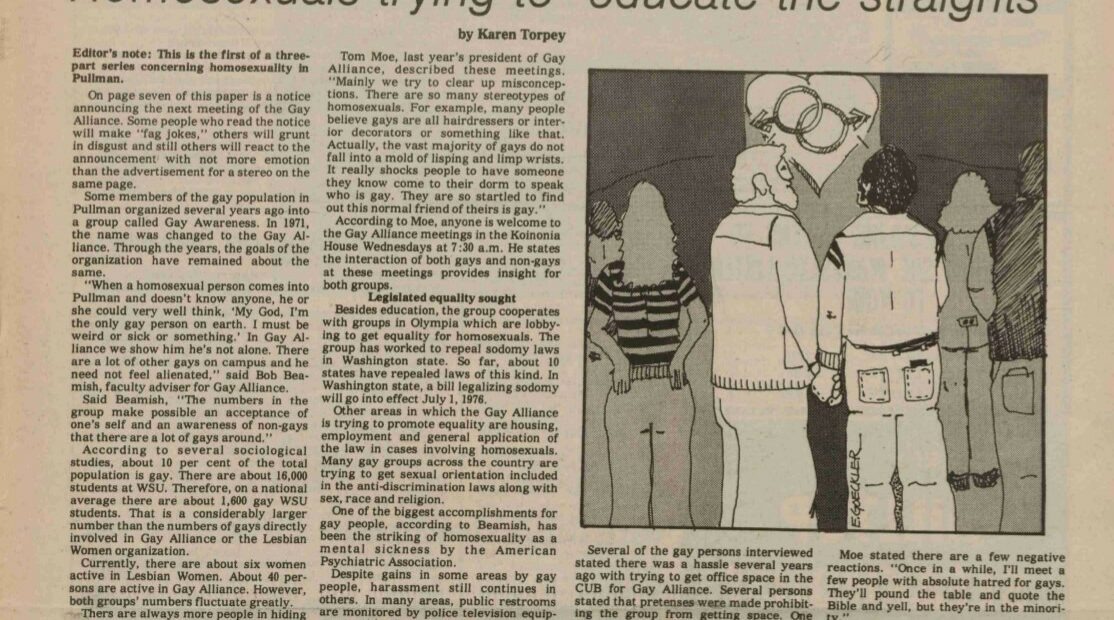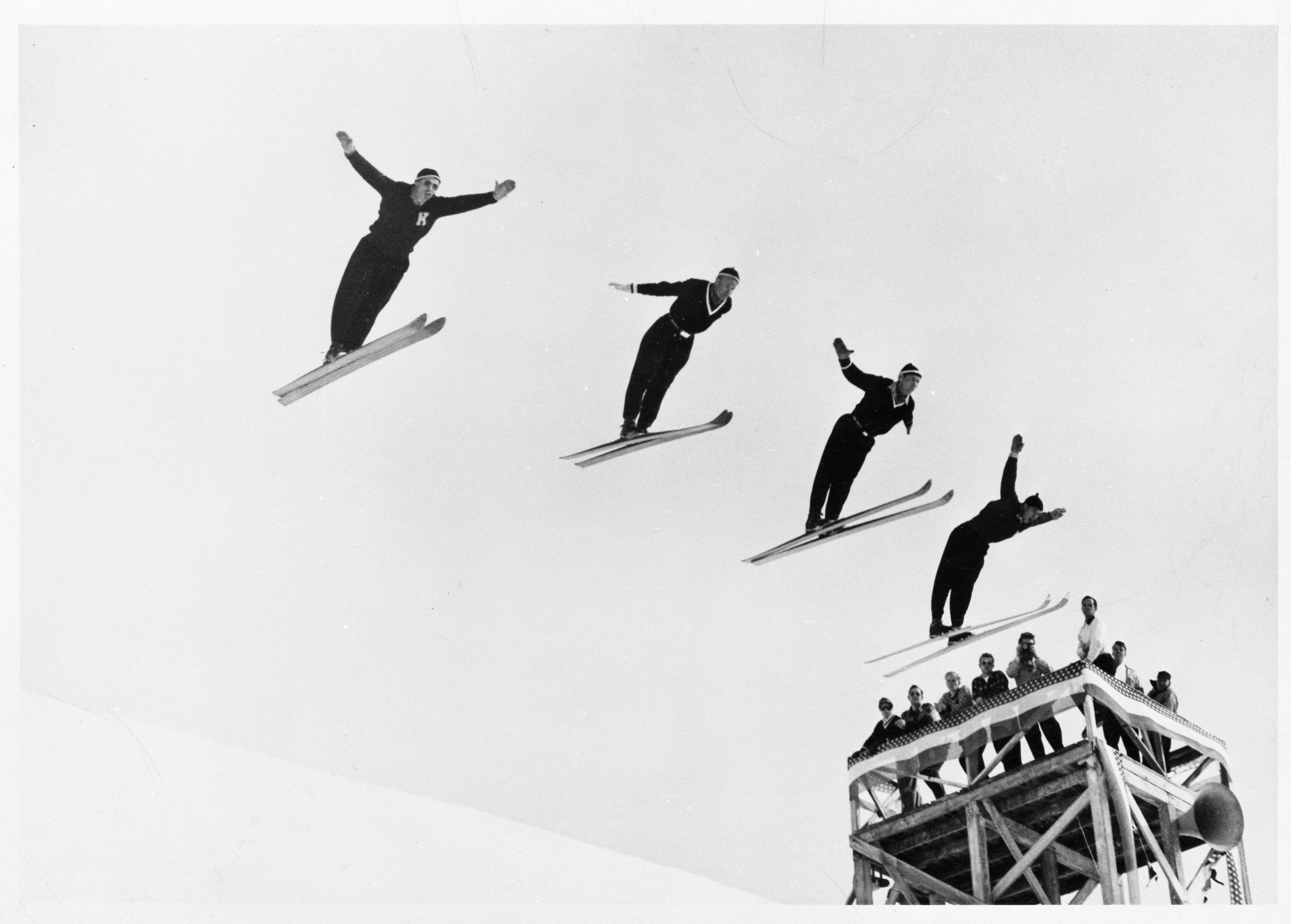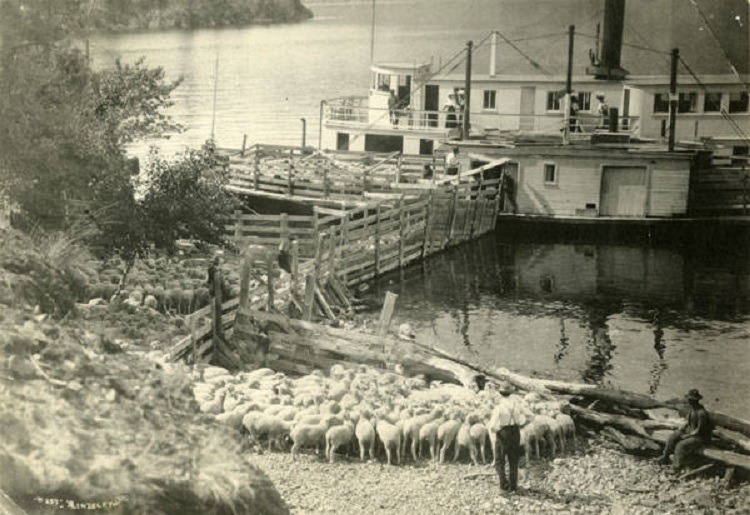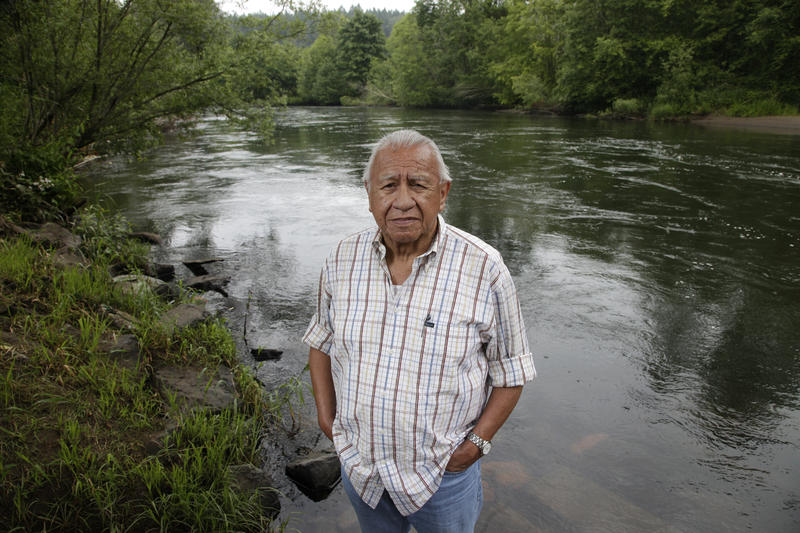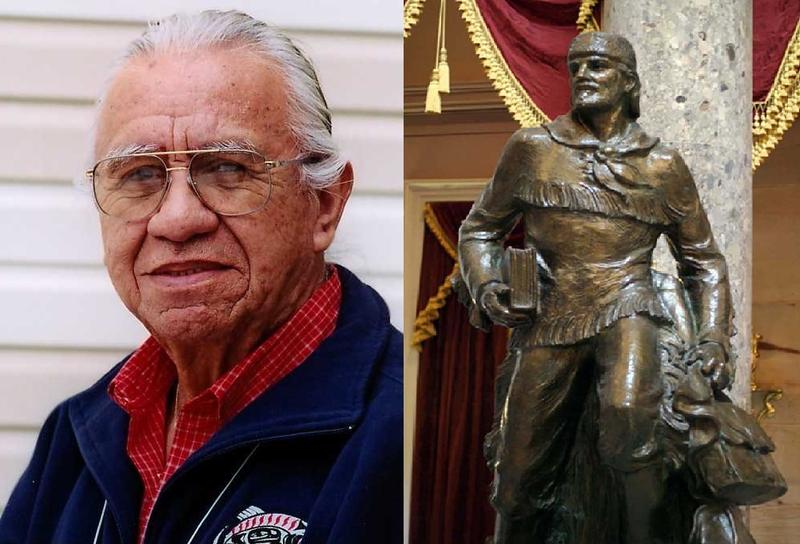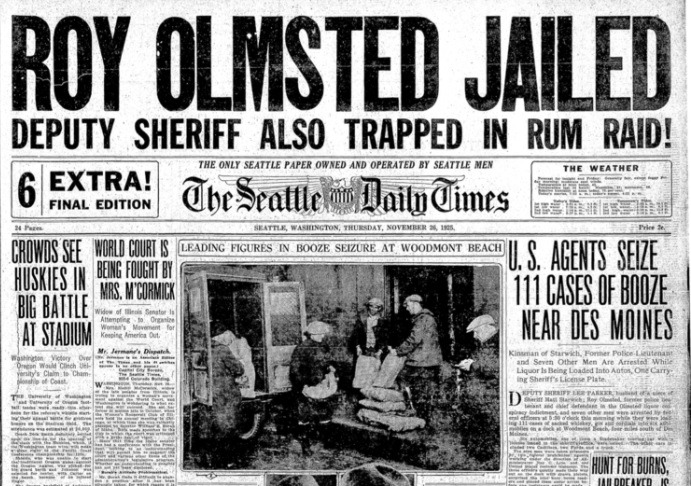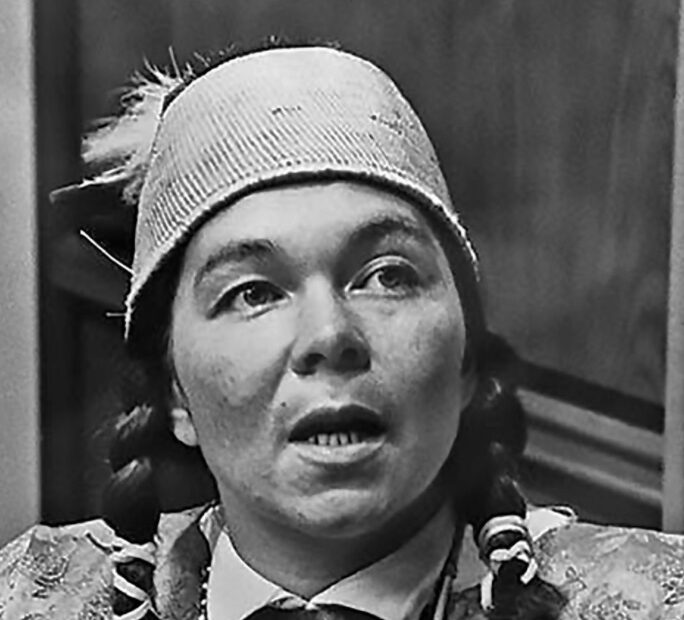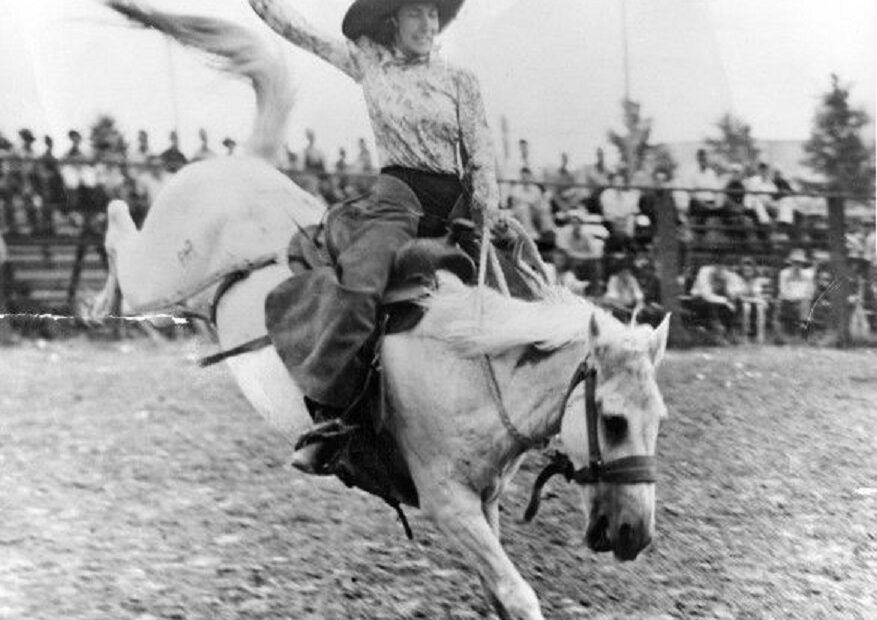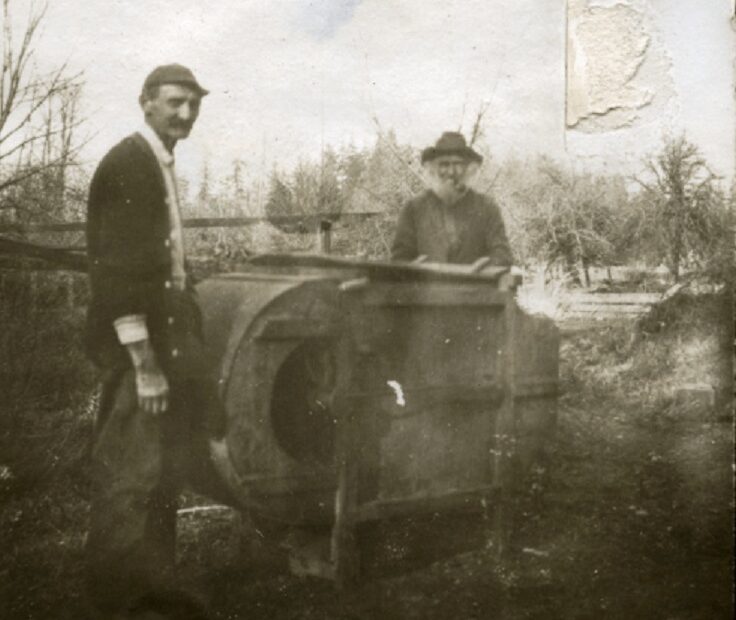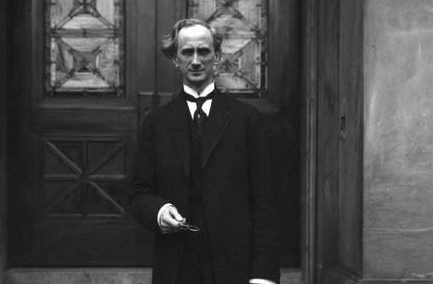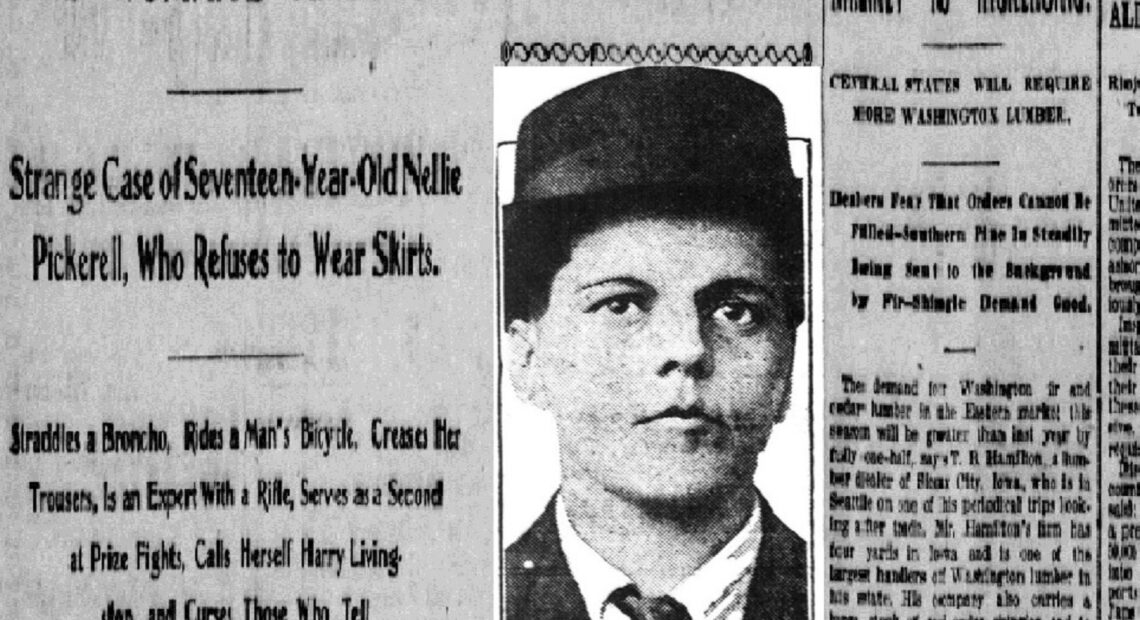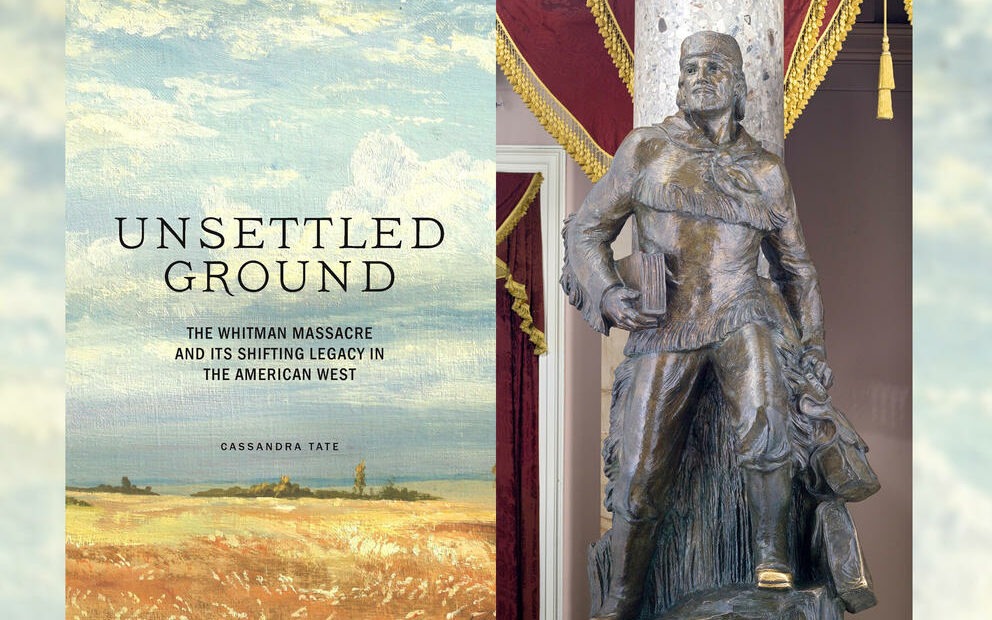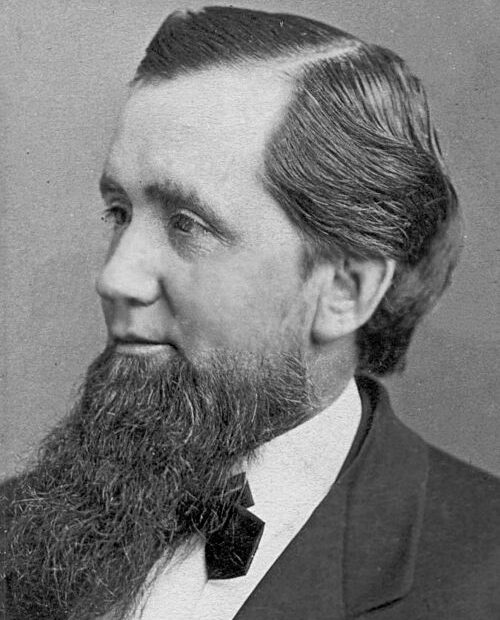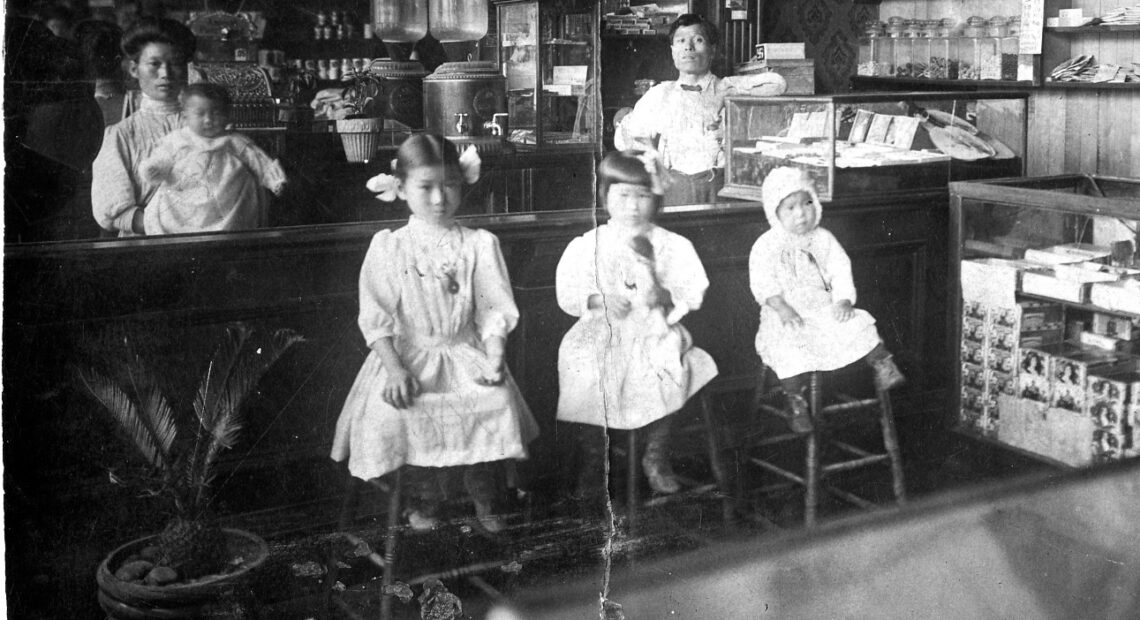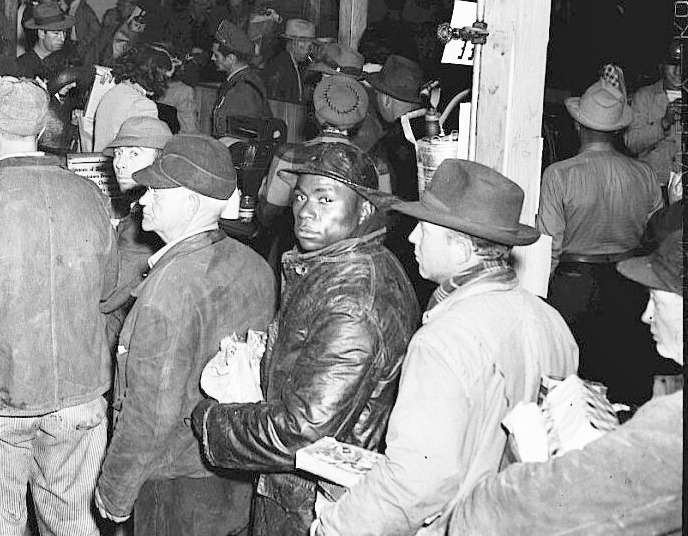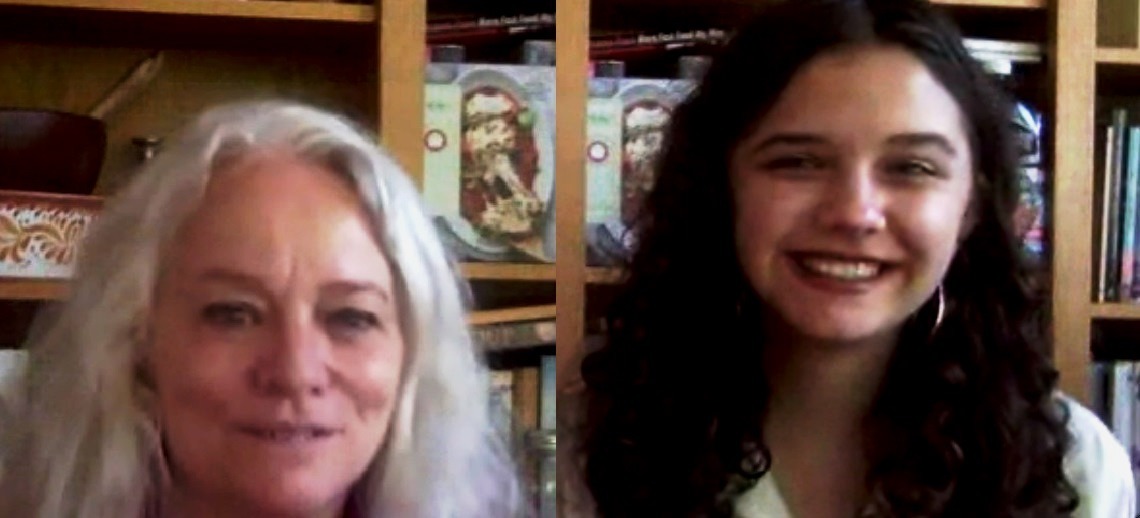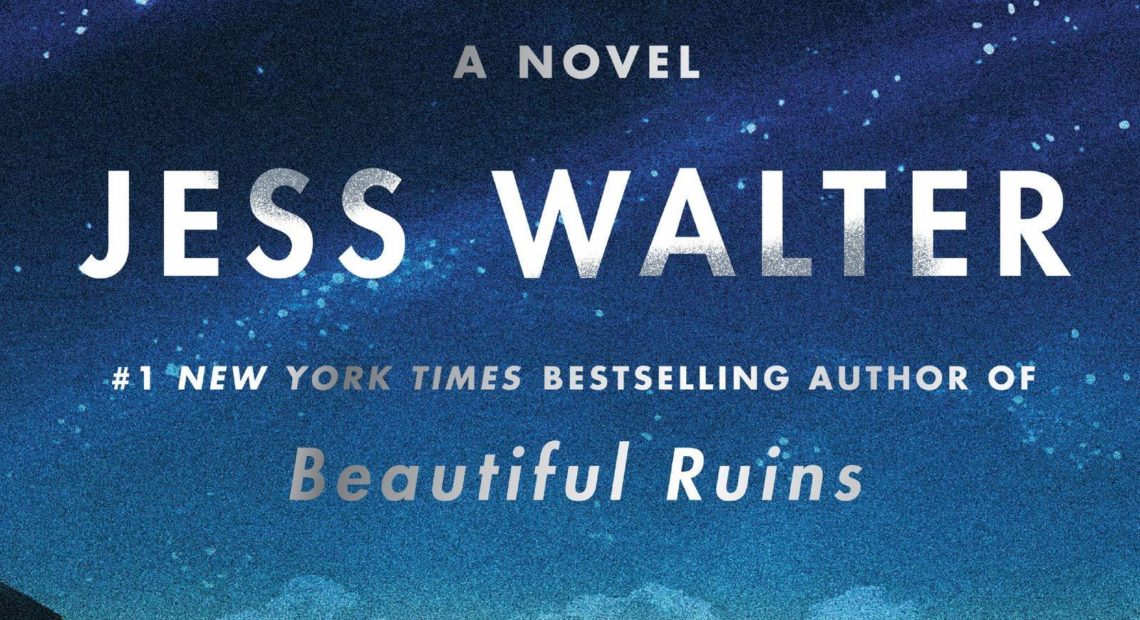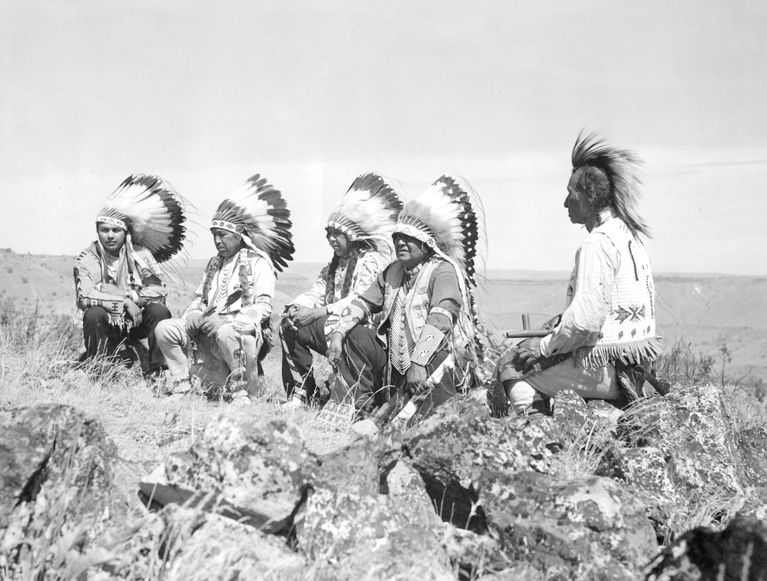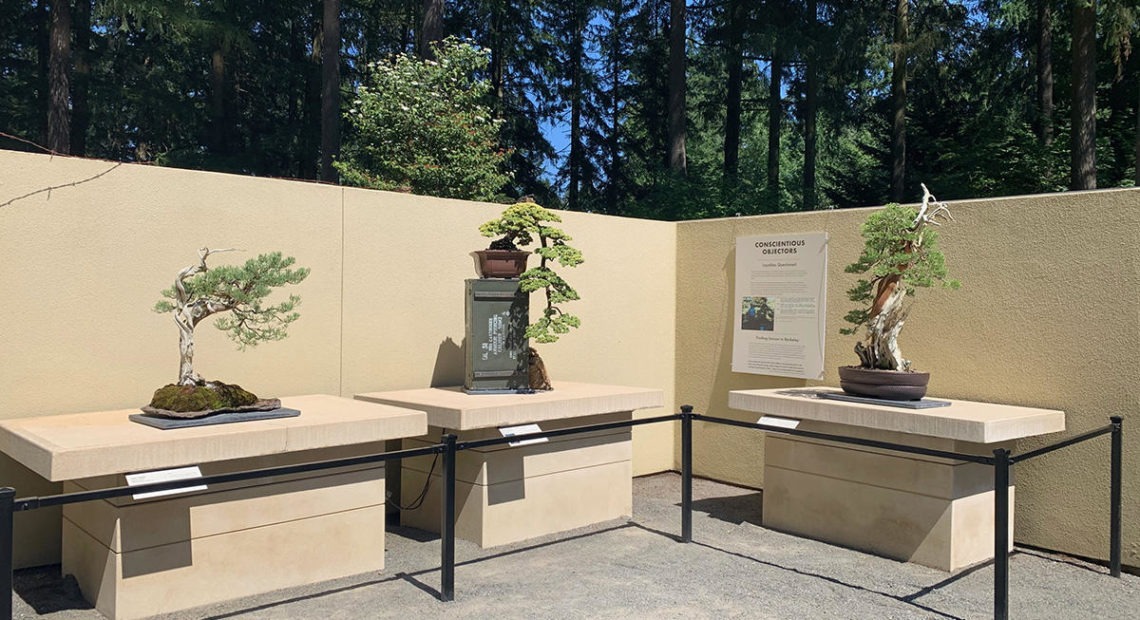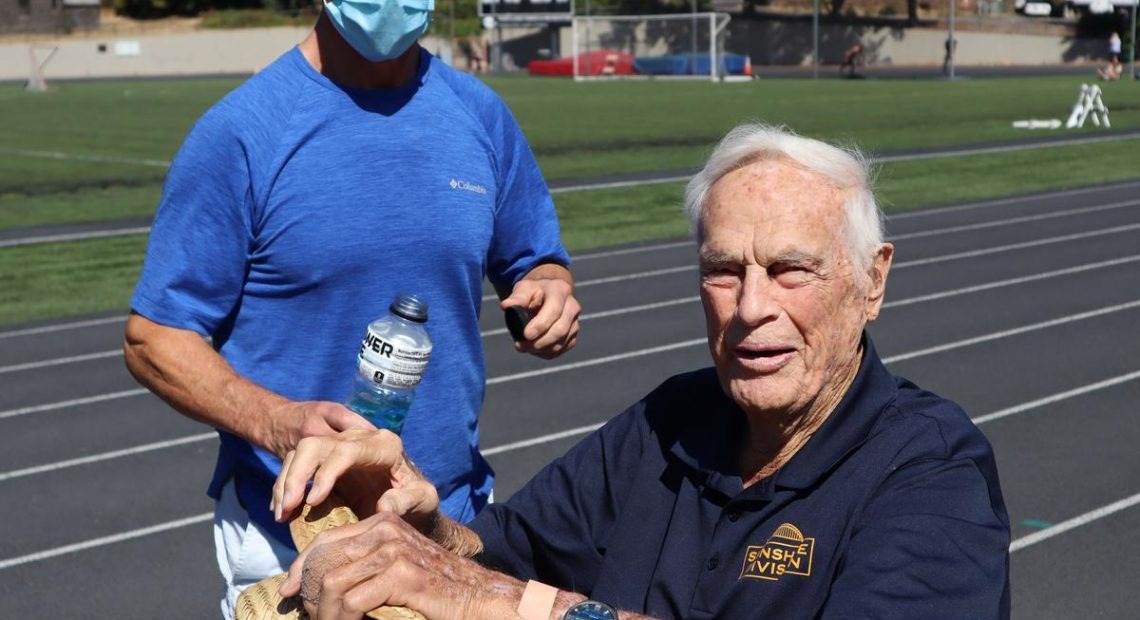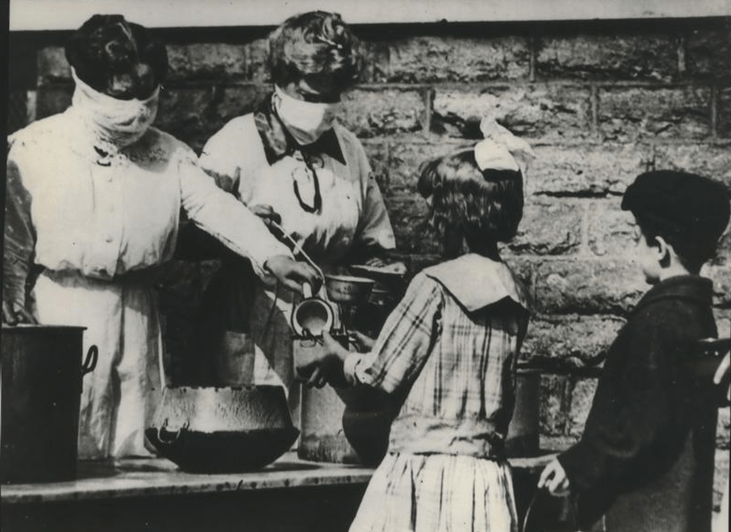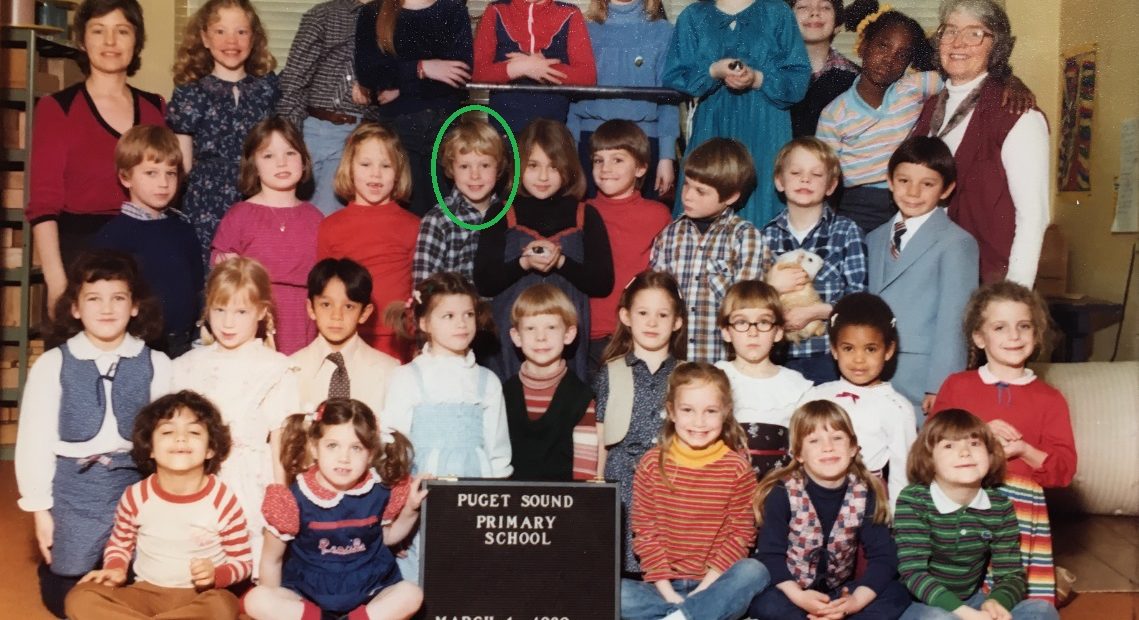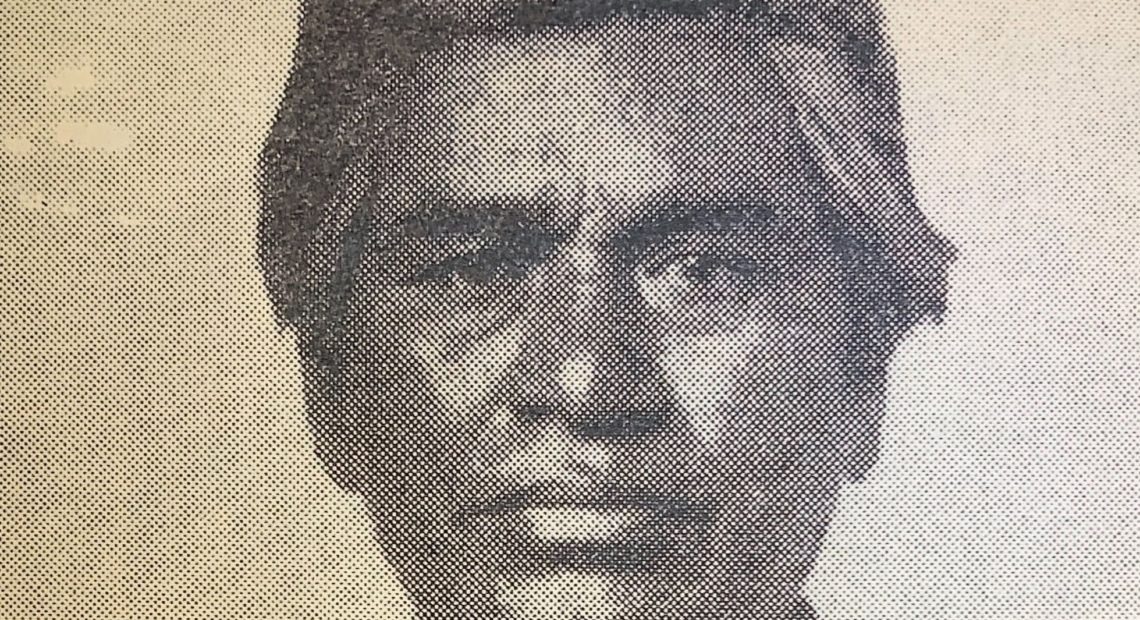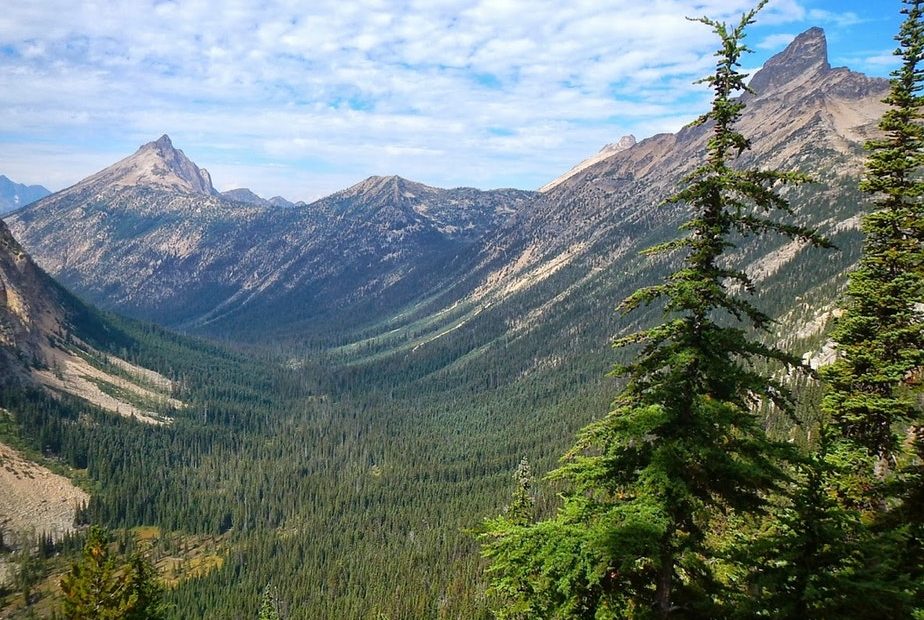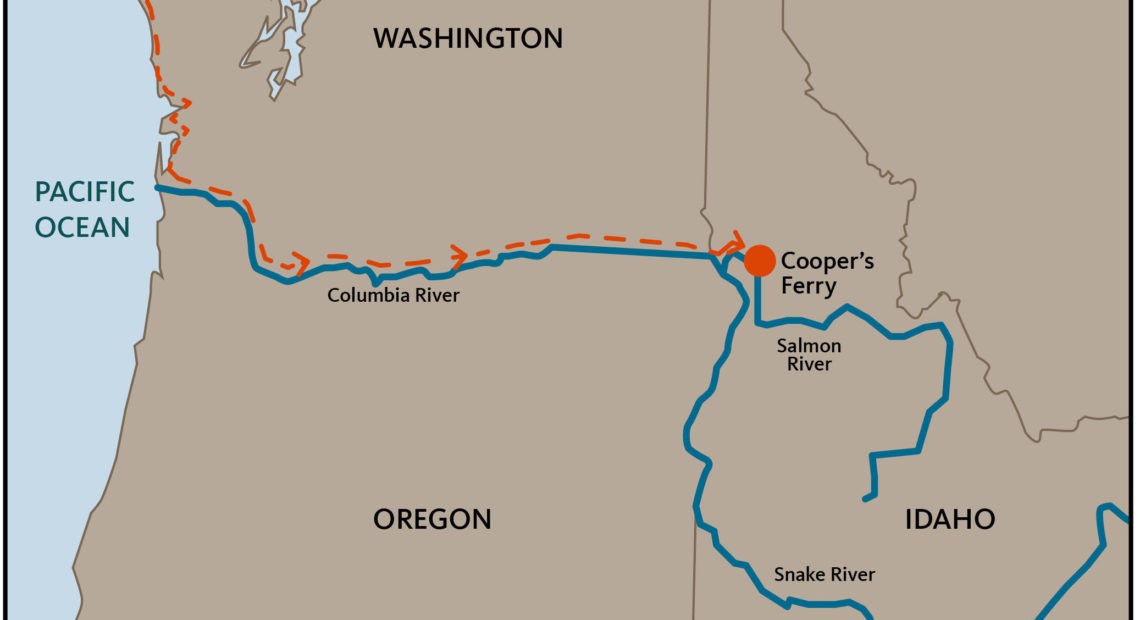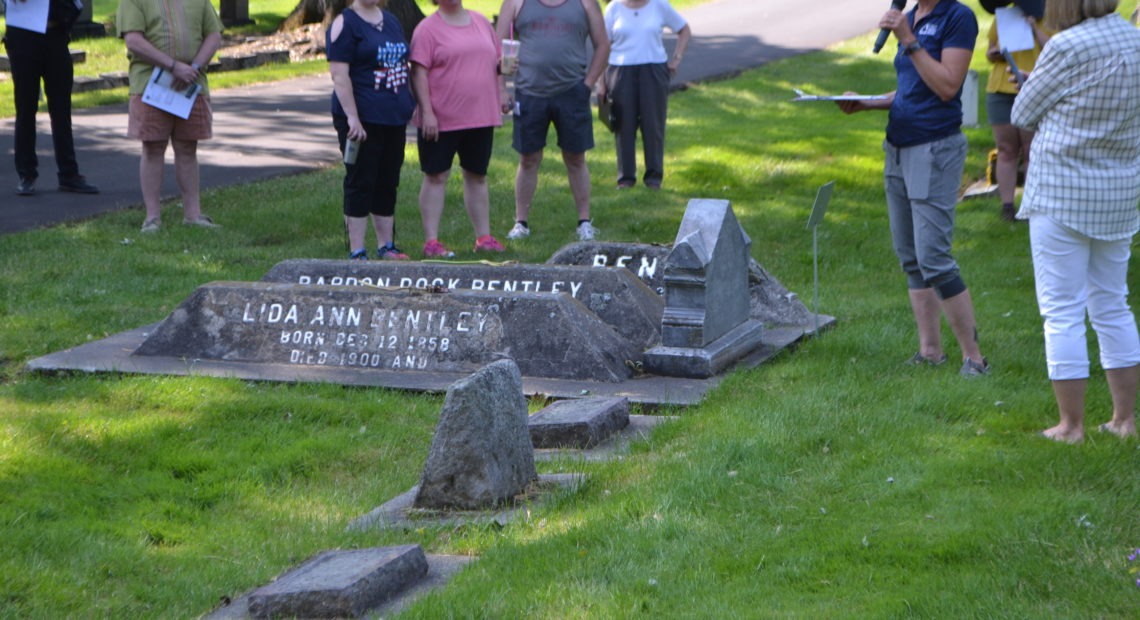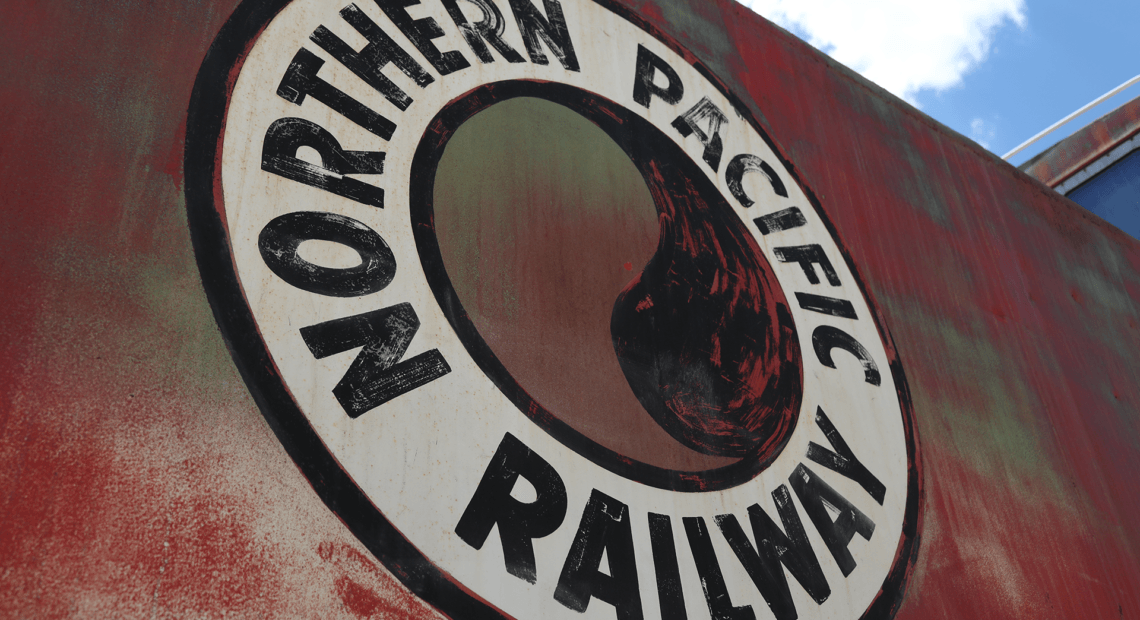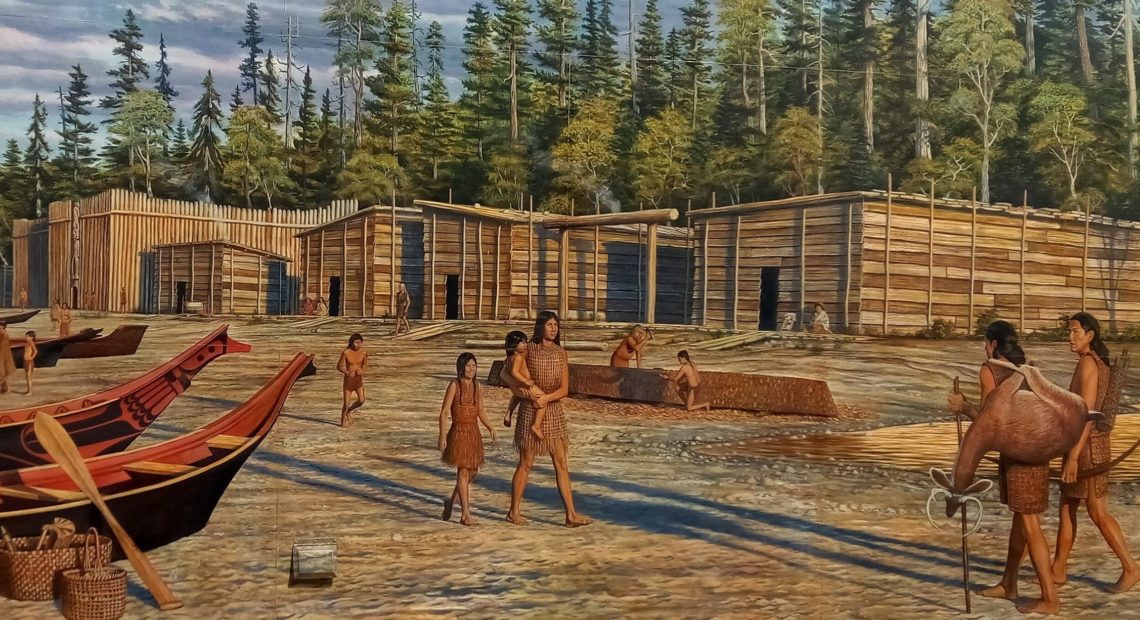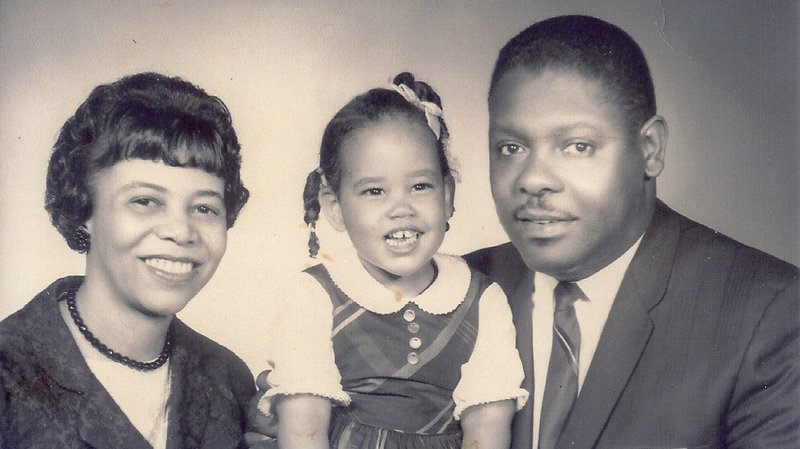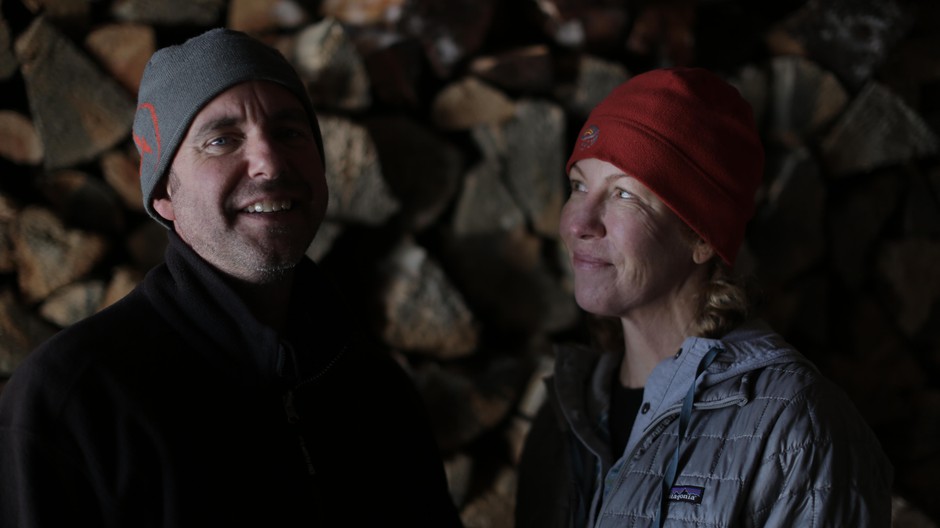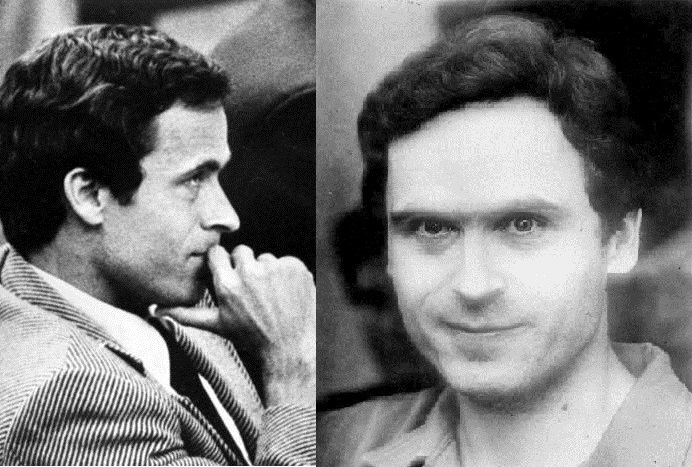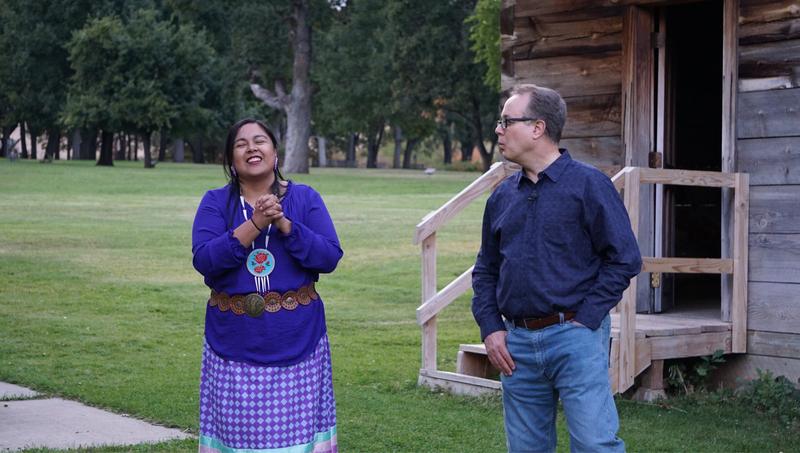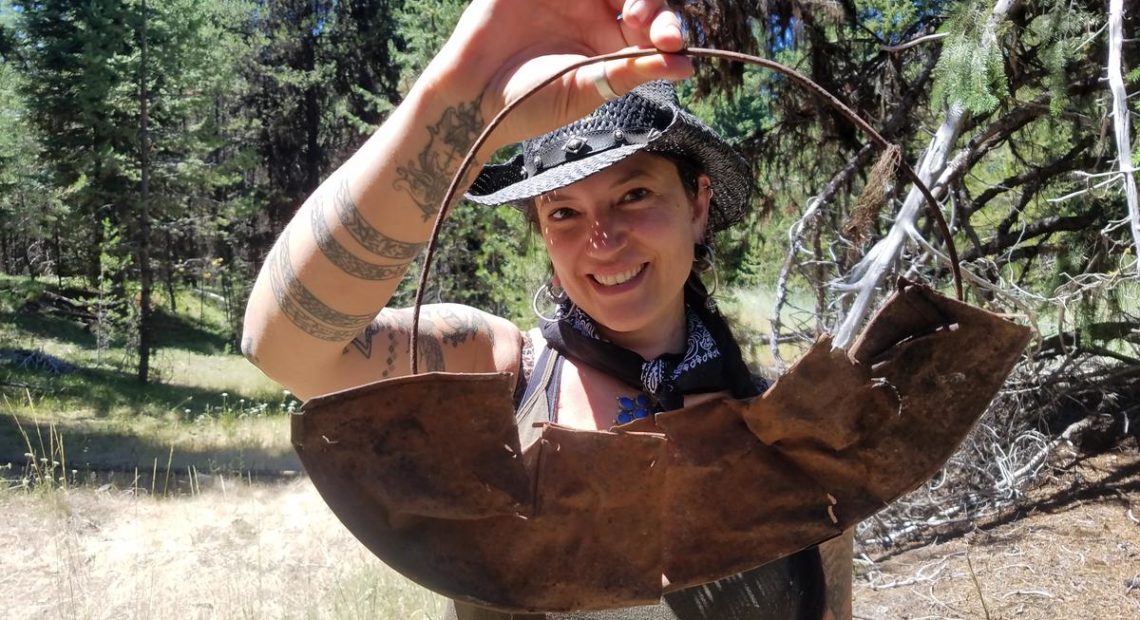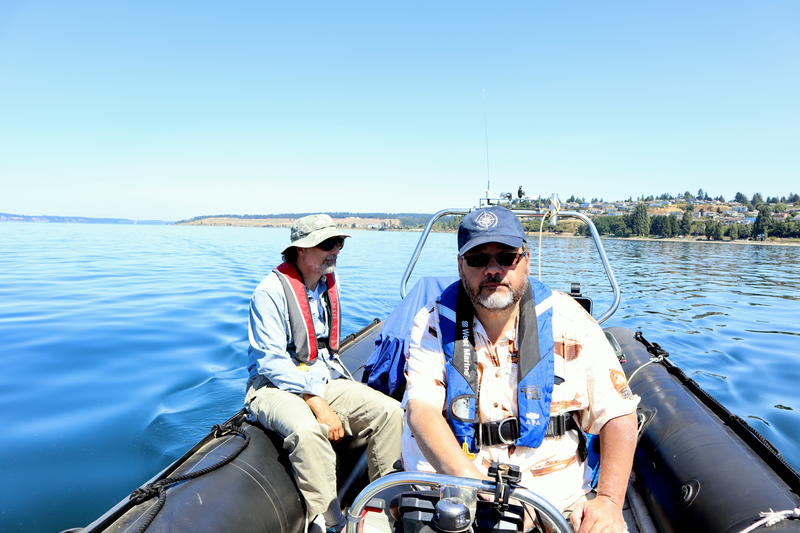The story of some Native American Scouts and their complicated reasons for working with the United States government. Read More
On Asian America examines the rise in anti-Asian sentiment and it's history in the Northwest. This episode lookes at historically violent acts against Chinese workers in the rural Northwest from the Hell's Canyon Massacre to mobs pushing out the Chinese in small towns. You'll also hear from those of Asian descent who share their experiences living in rural areas and how Read More
For generations Marcus Whitman has been widely viewed as an iconic figure from early Pacific Northwest history, a venerated Protestant missionary who was among 13 people killed by the Cayuse tribe near modern-day Walla Walla, Washington, in 1847.Read More
In this Past as Prologue essay, WSU Professor Karen Phoenix explains the history of the shipping container and its Spokane ties. Read More
The company Gameloft tackled the redesign of Oregon Trail for Apple Arcade just in time for the increase in worldwide play because of the pandemic. Its target audience: the now-40-year-olds and their kids. And more Native American players. Read More
What the struggle over recognition for WSU's Gay Awareness student group shows is some of the similarities between rural and urban LGBTQ rights. Rural areas — especially college towns like Pullman or Moscow — are also queer places. People in cities who were against gay rights used the same tactic as those in Pullman—the public-referendum—to deny housing or employment Read More
Few among us have tried our luck at competitive ski jumping, and there is no shame in that considering these skiers can reach speeds around 60 mph before they take flight. But there's something riveting about the daring sport even for casual onlookers. The Northwest was once a "hotbed" for Nordic jumping as detailed in a new book and a parallel museum exhibit.Read More
Learn how sheep ranchers in the late-nineteenth century in Eastern Oregon were already a part of complex agricultural and industrial systems that provided food, clothing and commodities to markets across the U.S. Read More
The Billy Frank Jr. statue would replace one of Oregon Trail pioneer Marcus Whitman. The larger-than-life bronze of Whitman has stood in the U.S. Capitol's Statuary Hall for nearly 70 years.Read More
A measure to honor the late Billy Frank Jr. with a statue at the U.S. Capitol cleared the Legislature Monday. On a 44-5 bipartisan vote, the Democratic-led Senate approved the bill that seeks to replace Washington’s Marcus Whitman statue in the National Statuary Hall Collection with a statue of Frank, a Nisqually tribal member who championed treaty rights.Read More
Prohibition did not limit the demand of alcohol, and many people did not support it, including the police. On an early morning in March 1920, Seattle Police Lieutenant Roy Olmstead and Sergeant T.J. Clark met a crew of bootleggers loading a shipment of Canadian whiskey from Vancouver, B.C. for Seattle. Olmstead and Clark were not there to arrest the criminals, but to watch Read More
Women have shaped so much of how we live in Washington. As Women’s History Month comes to an end, meet prominent figures in the state’s history who have worked in community activism, environmental preservation and more.Read More
The women athletes of early rodeo provide a broader understanding of women’s roles in rural history. Several top cowgirls like Fannie Sperry Steele, Mabel Strickland, and the Greenough sisters were born and raised on ranches across the Northwest. By studying these women, we have learned that women gentled and trained horses, moved cattle, and managed ranch duties. Read More
Washington’s sprawling Capitol campus features war memorials, a granite monument to fallen police officers, a replica of a Roman-style fountain and a brass sundial. As soon as this summer a new monument will join the collection. It will honor George Bush, Washington’s first Black pioneer, along with his son, William Owen Bush, who was the state’s first Black lawmaker, and Read More
During the early decades of the 20th century, Mark Matthews became one of the most powerful religious leaders in the United States. His Seattle congregation was the largest Presbyterian church in the world with more than 10,000 members at its peak.Read More
Today we would recognize Harry Allen as trans. That term and concept did not exist in 1912, but there were many people in the past who had been assigned one sex at birth, but later in life transitioned to the sex that they more readily identified with.Read More
Leaders of seven Northwest tribes testified this week in favor of replacing a statue of Oregon Trail pioneer and missionary Marcus Whitman in the U.S. Capitol. A proposal pending in the Washington Legislature would install a statue of the late Native rights activist Billy Frank, Jr. in Whitman's place of honor.Read More
Cassandra Tate’s recent book on the storied white missionaries sheds light on a poorly understood chapter of our state’s settler past.Read More
The strike—and the violence that occurred—became George Pullman’s legacy, rather than his attempt to create the utopian worker’s town. When he died, his family buried him in a lead-lined coffin because they were concerned workers would try to desecrate it. Read More
In this installment of the "Past as Prologue" series comes the story of a U.S. soldier, Sgt. George Yamauchi , from Pasco. He asked in 1943: 'What is an American?' Yamauchi penned the question in the local newspaper after his family was persecuted. The question defining who is an American is as relevant today as it was then. Read More
By 1950, 20% of Pasco’s approximately 10,000 residents were Black, almost all living in slum conditions. Few lived in the new atomic community of Richland and none in “lily-white” Kennewick -- a fact of which Kennewick city leaders and police at the time were proud. Not only was housing segregated, but Black residents were forced to endure broad discrimination in Read More
Lewiston resident Lilienne Shore Kilgore-Brown actively takes part in protests now. So did her grandmother Susan Kilgore in the 1970s. On StoryCorps Northwest, Susan tells Lilienne what she was protesting and what she learned from those experiences.Read More
Jess Walter's new novel an adventure tale based on actual events in the early days of the last century's labor movement — which was much wilder and bloodier than most people remember.Read More
Faced with the threat of forced removal or worse, in 1855 leaders of the Warm Springs and Wasco Tribes forfeited their claim to roughly ten million acres, and moved to a reservation. In exchange for land to offer white settlers, brokers for the United States government made promises. Among those: Tribal members would not be stopped from traveling off the reservation to Read More
What does the contemplative art of bonsai have to do with World War II? Plenty, said Aarin Packard. He's the curator at the Pacific Bonsai Museum, which displays all kinds of the dwarfed trees pruned and trained into artistic shapes.Read More
The story of Captain Tom in Britain reached Bud Lewis of Portland through a chain of friends and family. The two men are virtually the same age. Lewis also served in World War II in the tropics. The U.S. Army veteran was convinced by his circle to copy his British counterpart.Read More
In 1918 Walla Walla, the chief of police, refused to enforce a state mask mandate. He pointed out that he was going to meet heavy resistance and, anyway, that he had no authority to carry out a state directive, only city ordinances. Still, he also openly defied the instructions of the city’s health officer, J.E. Vanderpool, to follow the state health officer’s guidance.Read More
Olympia Correspondent Austin Jenkins was a first grader on a school camping trip near Mount St. Helens when the volcano erupted on May 18, 1980. Austin recently unearthed his scrapbook from that time and interviewed several others who were on that memorable trip. On this 40th anniversary of the eruption, Austin recounts their harrowing escape.Read More
The year was 1918 – the last time a pandemic reached Spokane. A century has passed, and the Inland Northwest and the world are once again contending with quarantine and the powerful role public health officials can play in times of outbreak.Read More
The Treaty of 1855 created the Yakama Nation reservation as we know it today. In the decades after, the Yakama, Washington state, and the United States were trying to figure out their new relationship. At the turn of the century, Louis Mann was in the middle of it all, working as an interpreter for the tribe. Now, audio recordings of Mann’s strong voice have resurfaced.Read More
National Park Service police have been investigating the illegal excavation of an ancient mountain-goat hunting camp. They discovered someone had dug up the “Rock Shelter” site outside the town of Newhalem, Washington, last summer.Read More
An archaeological dig along the Salmon River in western Idaho has yielded evidence of one of the oldest human settlements in the Americas yet found. Newly published findings from the excavation give impetus to a scientific rethinking of when and how the first people arrived in North America.Read More
Fallen soldiers, outlaws, bankers, a madame, and maybe even a couple of witches all reside in one place now. It isn’t the set up for a bad bar joke, though.
Mountain View Cemetery in Walla Walla is the earthly home to these and other deceased figures. Read More
Toppenish Railway Museum Mary O’Dell believes preserving history helps with community identity, that’s why she started working at the railway museum in Toppenish, Wash. almost 30 years ago. Full Transcript […]Read More
A legend about a great flood has been passed down through the centuries among the Klallam people on the north side of Washington's Olympic Peninsula. As re-told by Klallam elder Ed Sampson on a recording preserved by a University of North Texas linguist, the people noticed the fresh water turning salty -- a detail from which we infer a tsunami. Read More
Miriam Pratt was five years old when Martin Luther King Jr. was assassinated in 1968. She remembers that after her father, Seattle Urban League leader Edwin Pratt, found out, he paced back and forth in his bedroom. "He was emotional," Pratt's daughter tells Jean Soliz, her godmother, at StoryCorps. "I had never seen him like that."Read More
Some remote cabins are for solo retreats – not this one. Staying at Tilly Jane A-Frame is a shared experience. And sharing it has saved it.Read More
A review of 'Conversations with a Killer: The Ted Bundy Tapes' and why people find the serial killer from the Northwest interesting. Read More
A public art project proposed to be built beside the now-inundated great falls of the Columbia River has been put on indefinite hold by its sponsor. The installation was planned for Celilo Falls — east of The Dalles, Oregon — as the sixth and final outdoor artwork in a series by celebrated designer Maya Lin along the Columbia and Snake rivers.Read More
A proposal to remove the larger-than-life statues of pioneer missionary Marcus Whitman from the Washington state capitol and the U.S. Capitol drew angry responses during an initial legislative hearing in Olympia.Read More
Emily Washines was 18 years old when she was crowned Miss National Congress of American Indians. Yakama tribal councilmembers and elders sung a warrior song for her and then extracted a promise. Tribal leaders had something in mind. They wanted Washines to remember a message about a little-known war that wracked the Northwest in the 1850s. Read More
By 1885, the small town of John Day had one of the biggest Chinatowns in the U.S. after San Francisco, Portland and Tacoma. Now there's just one solitary building left of what might have been 100 structures at the town's peak.Read More
An Oregon-based group of shipwreck hunters wants to find the historic remains of the first steamship to provide service in the Puget Sound in the 1800's. The shipwreck search was inspired by one Port Townsend, Wash., man's obsession. Read More

